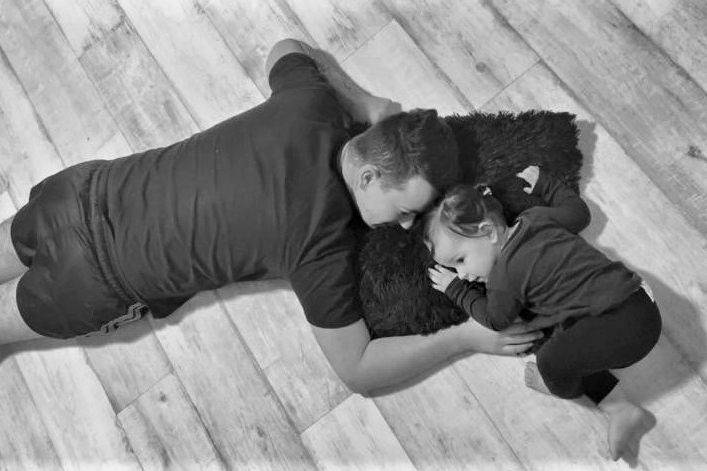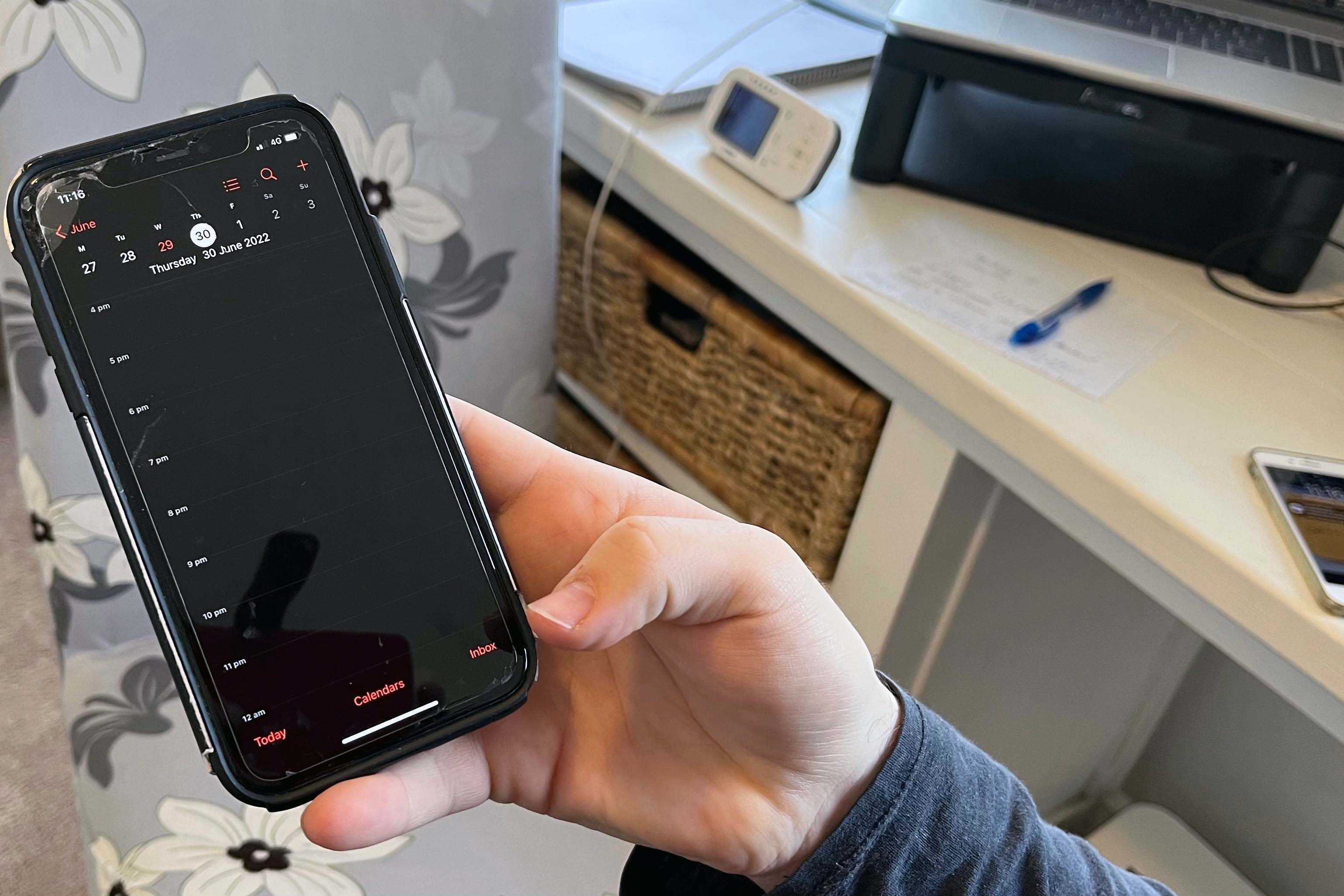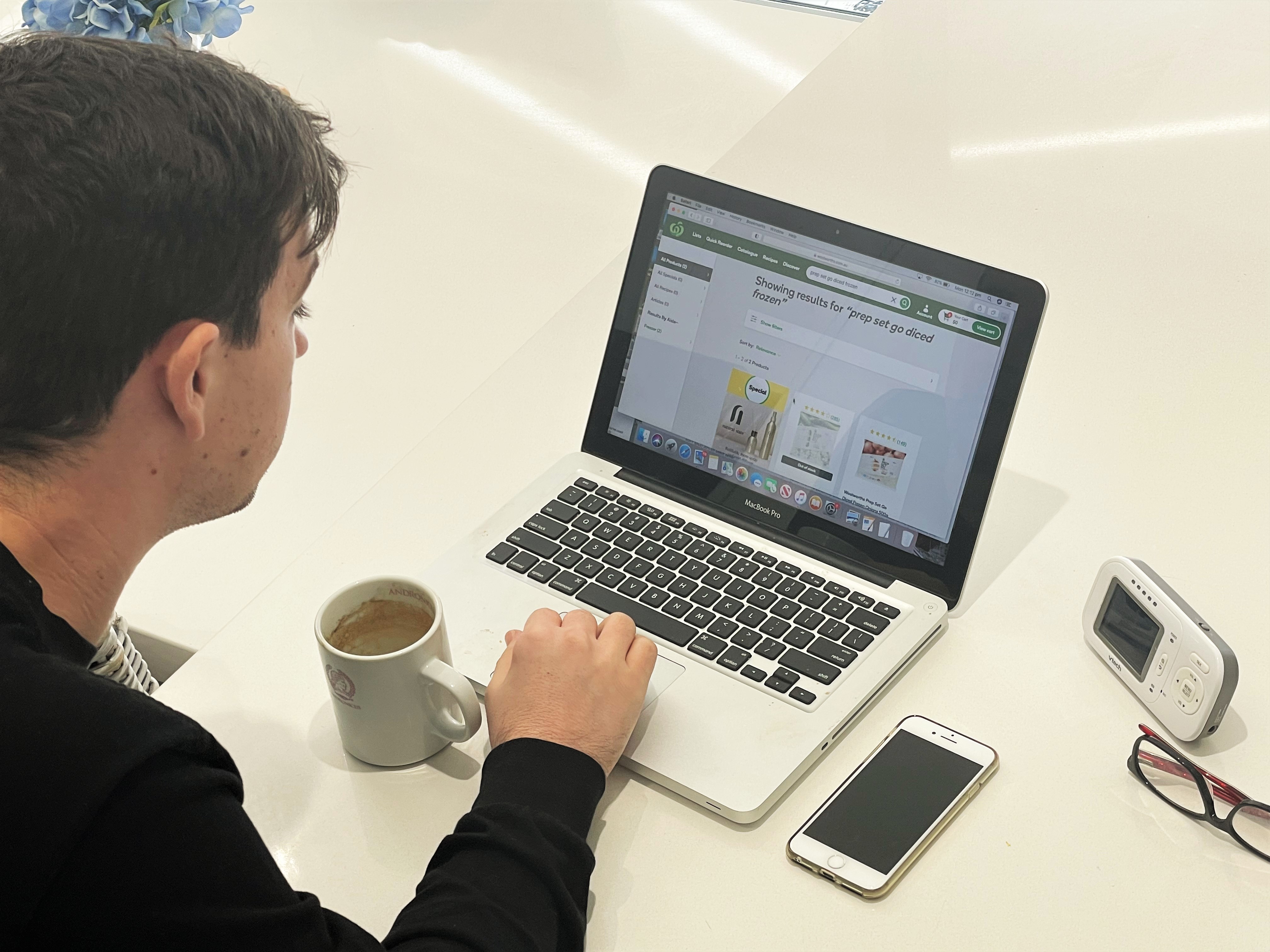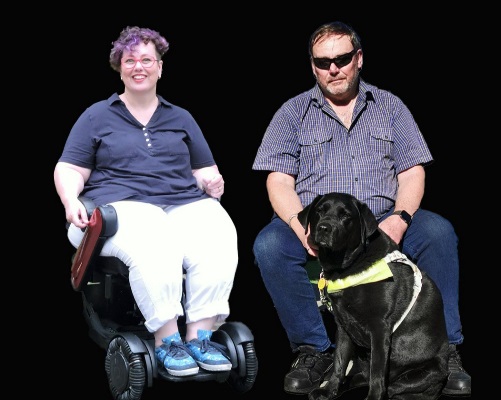Family, friends, and the AT that connects us – Jayden’s story
Written in collaboration with Ingham Institute's Assistive Technology Hub

Before a traumatic brain injury (TBI) Jayden’s life looked very different. Five years earlier, a motorcycle crash would press pause on this life, leaving Jayden with the challenge of what life would look like, post-TBI, and the assistive technology (AT) he would go on to use to support that need.
“Pre-accident Jay was able to do a lot of the things I now can’t do,” he said.
"But I know I need to adapt my life and the way I do things or help out wherever I can to gain that level of independence for myself and my family"
Becoming a father
Jayden said once he became a father, things became clear about his physical limitations and how he had to approach parenting differently.
“When Adelyne was born, I was able to change her nappy by putting her legs over my left arm to do it one-handed with my good arm. As a newborn, I had strategies in place to do it. But when she began to crawl and move around between 3-4 months of age, it became impossible to do this one-handed, he said.
“There are things I can’t do anymore, but my time will come.”
“I help in other ways like when my wife is changing the nappy, I hold the toys to distract her so she can get the job done more effectively, or I bring all the bits she needs and pass them to her. Once Addy is using the toilet, I can take her to the bathroom and help, but I admit there are limits to what I can do right now.”
“I’m not changing the nappy, but I’m still helping my wife with the baby. That’s how I have learned how to help.”
Jayden said he was learning how to be a dad in a myriad of different ways.
“Addy’s 15 months old so I can help by taking her to the shower and washing her. I put her on the non-slip mat on the floor and I can use the shower chair so we can shower safely together,” he said.
“She’s starting to understand that the way Mum puts me in the car is not the way Dad puts me in the car and she’s starting to get that we just do things differently in our own way.”

AT for social connection
Jayden explained how things had changed cognitively following his brain injury and how he has learned to adapt ways of doing things, like memory-related tasks.
“I never used to have to write anything down. I had a good memory before, but now I have to rely on my phone. I can bring up SIRI and say, I have an appointment on this day at 2pm, and it puts it into my phone calendar,” he said.
“It took me a good year to embrace my ‘new normal’. I have my Apple calendar shared with my wife so we have shared calendars. For dates with my wife, I would input reminders: taking wife out to dinner, Friday night – don’t go to work that night, we have a date – that kind of thing. I found it very helpful.”
Jayden was socially busy and involved himself in many activities before his motorcycle accident. He explained how ‘pre-accident Jay’ lived such a different life and how he had to adjust to the new norm.
“I ended up having to find new hobbies. I was a drummer, played rugby, and rode motorcycles. All that just suddenly stopped,” he said.
“I saw friendship groups thinning out, and it wasn’t because of any bad blood, it was just because your lifestyle had changed, and you had changed. It was really depressing to watch.”
Jayden explained that since his life had changed so dramatically, the things he did regularly like meeting up with his rugby mates after a game or hanging out with the motorcycle club, just weren’t his world anymore after his accident.
“My wife and I decided to find other interests and things we could do to stay connected and meet new people. We started going to dance classes, I’m learning a new language, I got my boat licence since I couldn’t ride motorcycles anymore, I found more friendship groups because I put myself out there,” he said enthusiastically.

Work-life balance and a little AT
Jayden said it was important to find a new sense of purpose through his journey with living, playing, and working.
He said he has gained a lot of purpose and fulfillment through his employment as a family liaison officer with Synapse, a brain injury organisation that works across Australia.
“It has been wonderful working with Synapse and helping and supporting people impacted by brain injury,” he said.
“They are going through the same thing that I went through and that lived experience makes a big difference in reaching out to others in similar situations.”
Jayden said that his organisation had supported him every step of the way and embraced his use of AT in the workplace, and to do his job more independently.
“Before my accident, I used to be a very fast typer. Now the fastest way for me to do an email, is voice to text and using the ‘read out loud’ functions, so I’m able to understand more of what the information is in an email,” he explained.
“That has helped me a lot. I use the read-aloud function on both my computer and iPhone. I use the standard ‘accessibility functions’ on my phone to use it more effectively.”
“I would say to SIRI: ‘read aloud my last text message’ - and my phone will tell me what it is.”
For work, this has been invaluable for Jayden, and he said the applications for AT for work made a big difference in his productivity and output as an employee.
“If I have something printed and I need to read it, like a form, I can take a photo and it will read it to me. I have a reader pen where I can highlight over a word and the pen will read the text aloud,” he said.
In addition to his work at Synapse, Jayden also supports the Assistive Technology Hub through Ingham Institute’s advisory committee. Jayden uses his lived experience to provide advice on how the Hub can help people with a brain injury to find out more about AT and how it can increase their independence and improve their lives.
Jayden tried some various AT to keep his memory active including apps recommended to him, following his injury.
“After my injury, I downloaded all the apps they recommended to support people living with TBI, but none of it really helped and it was quite repetitive and didn’t allow me to grow. Instead, I play chess. Chess is my brain game and keeps my brain and memory active.”
One step at a time, AT has permeated every aspect of Jayden’s life and has allowed him to be involved in every part of the community, socially, recreationally, and professionally. He has chosen to use AT effectively as a tool to build independence and live his life through bodily autonomy and choice.
This is Jayden’s AT, and this is Live, Play, Work.
AT featured in this story:
• SIRI
• iPhone accessibility functions
• Read Aloud
• Reader pen
• Apple calendars
• Non-slip mats
Other useful links:
- Sign in to your free AT Portal to discover more peer-led and co-produced AT articles and videos including Screen Readers - Your voice to the digital world' by AT user and OT student Judy.




